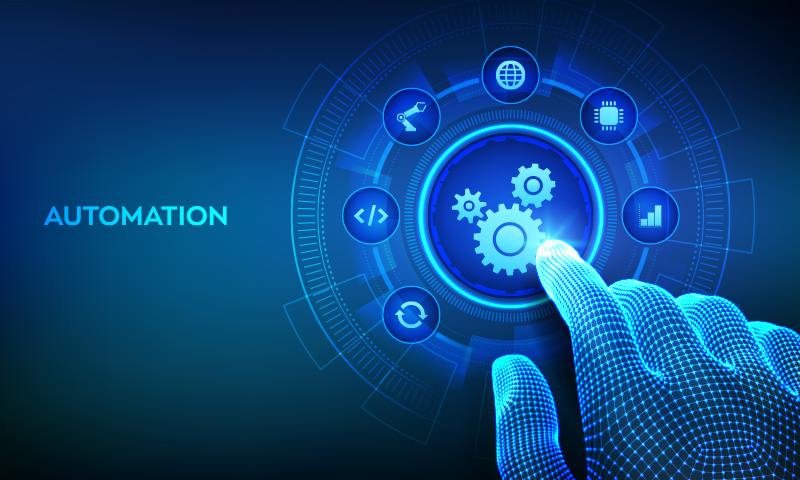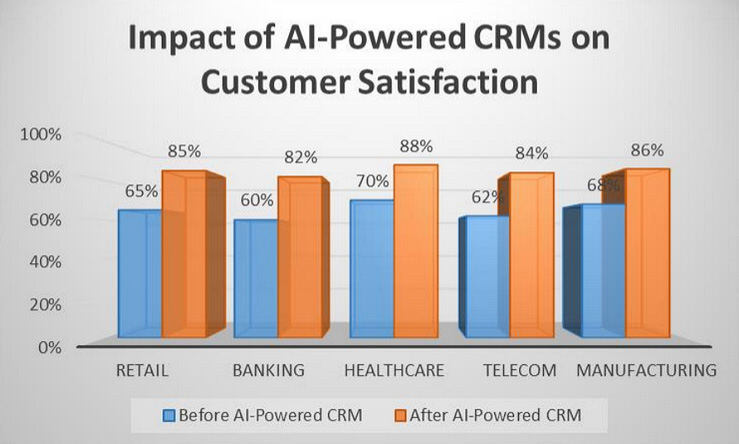
Key Takeaways
- AI-powered CRM systems enable businesses to deliver personalized experiences, predict customer needs, and foster deeper relationships.
- Automating routine tasks and leveraging actionable insights allow teams to focus on high-value activities and make data-driven decisions.
- Successful adoption requires quality data, organizational alignment, employee training, and a balance between automation and human touch.
- Netiks leverages the capabilities of Microsoft D365 with Copilot to build industry-specific use cases and boost customer satisfaction, productivity, and sustainable growth.
Opening Thoughts
In today’s fast-paced business landscape, artificial intelligence (AI) is no longer a futuristic concept—it’s a game-changer reshaping industries, including customer relationship management (CRM). Integrating AI into CRM systems allows companies to gain insights, automate tasks, and personalize experiences.
While AI-powered CRMs offer significant benefits, they also come with challenges that businesses must navigate. In this article, we explore the advantages, challenges, and recommendations for implementing AI-powered CRM solutions, equipping you with the knowledge to harness this technology effectively, especially since we, at Netiks, provide cutting-edge Microsoft D365 Solutions with Copilot tailored to your business needs, helping you unlock the full potential of AI to drive growth in your business.
Companies that successfully implement AI-driven CRM automation can experience up to a 30% increase in leads and a 50% reduction in costs *
* McKinsey & Company
What is AI-powered CRM?
By analyzing vast amounts of data, AI-powered CRMs leverage machine learning, natural language processing (NLP), and predictive analytics to uncover patterns, predict behavior, and personalize communications, enabling businesses to make smarter decisions.
AI-powered CRMs revolutionize customer engagement with tools like intelligent chatbots, predictive lead scoring, and actionable analytics. These features streamline workflows, improve efficiency, and elevate the customer experience by offering timely, personalized interactions. As technology evolves, AI-powered CRM systems are setting a new standard, empowering businesses to stay competitive and deepen their customer relationships.

Unlocking the Benefits of AI in CRM
AI transforms CRM systems into intelligent, proactive tools with the following key benefits:
1- Smarter Data Insights: Enhanced Reporting and Better Decisions
AI-powered CRMs analyze vast amounts of data to uncover patterns, forecast trends, and predict customer behavior. These insights help businesses refine their strategies, target the right audiences, and anticipate customer needs. By transforming raw data into actionable intelligence, companies can make informed decisions that drive growth, optimize marketing efforts, and stay ahead of the competition.
2- Tailored Interactions: Elevating Personalization with AI
By leveraging data such as purchase history, browsing behavior, and preferences, AI enables businesses to provide customized recommendations, targeted promotions, and personalized interactions at scale. This creates a sense of connection and relevance that drives customer satisfaction and loyalty.
3- Efficiency Boost: Automation Redefined by AI
Repetitive tasks like data entry, lead scoring, and follow-up communications are seamlessly automated with AI. Tools such as AI chatbots provide 24/7 support, while natural language processing (NLP) categorizes and routes inquiries efficiently, allowing teams to focus on higher-value activities.
4- Sentiment Analysis for Customer Retention
AI-powered CRMs excel in sentiment analysis by monitoring customer communications and social media channels for reviews and feedback. By analyzing text and identifying customer sentiment—positive, negative, or neutral—businesses can proactively address concerns, acknowledge positive feedback, and foster stronger relationships.
The global AI-powered CRM market size was valued at USD 14.1 billion in 2019 and is expected to grow at a compound annual growth rate (CAGR) of 28.6% from 2020 to 2027 *
* Grand View Research
Navigating the Challenges of Implementing AI in CRM
Following are some key obstacles that businesses may face with AI-powered CRM implementation:
1- Complex Integration: Overcoming CRM and AI Compatibility
Integrating an AI-powered CRM into existing technology infrastructure can be a significant hurdle and time-consuming process. It requires ensuring data quality and consistency, aligning organizational workflows with AI capabilities, and adapting to AI-driven changes in decision-making processes.
2- Cost Considerations: Balancing AI Investment and ROI
The cost of implementing AI in CRM can vary greatly depending on the platform’s complexity and the level of integration needed. While some CRM solutions incorporate AI directly, others rely on third-party tools, which may incur additional costs.
3- Ensuring Data Integrity: The Importance of Quality Data
AI is only as effective as the data it’s trained on. If the CRM system holds outdated, incomplete, or duplicated customer data, the AI may not provide the expected results.

4- Protecting Privacy: Safeguarding Customer Data
With AI-powered CRM, ensuring data privacy and security is a critical concern. Companies must comply with regulations like GDPR and implement strong security measures to protect against unauthorized access, breaches, or misuse of data. Failure to address these concerns can lead to significant legal and reputational risks.
5- Training the Workforce: Adapting to AI-Powered Systems
Train employees to effectively use AI tools, ensuring seamless integration and maximizing their potential.
6- Maintaining a Human Touch: Balancing Automation with Personalization
Over-reliance on automation can lead to a loss of human touch in customer interactions. Businesses must find the right balance, using AI for routine tasks and reserving human interaction for complex or high-touch service scenarios.

Source: ResearchGate
Key Recommendations for a Successful AI-Powered CRM Adoption
For businesses looking to integrate AI into their CRM systems, careful planning and strategic execution are essential to ensure successful adoption. Here are key recommendations to guide the process:
1- Set Clear Goals: Align AI CRM with Business Objectives
Before adopting AI, it’s important for businesses to set clear goals and success metrics aligned with their overall business objectives. Whether it's improving customer retention, boosting sales, or enhancing customer service, having defined targets will help ensure the AI system’s implementation directly contributes to the business's success.
2- Ensure Data Readiness: Invest in Quality Data and Governance
AI relies heavily on accurate, structured data. Businesses should assess the quality of their existing data, invest in data governance and cleansing initiatives and prioritize data accuracy, and consistency before integrating AI into their CRM systems.
3- Foster Collaboration: Engage Stakeholders Across the Organization
Successful AI adoption requires collaboration across the organization. Engage key stakeholders from different departments—sales, marketing, IT, and customer service—to ensure alignment on objectives and expectations. Develop a detailed change management plan that includes employee training and ongoing support. Cultivate a culture that prioritizes data-driven decision-making and empowers employees to leverage AI insights.
4- Select the Right AI-Powered Solution That Fits Your Needs
Choose a system that fits your company’s specific needs, scales with your business, and integrates seamlessly with existing technology. Consider the CRM’s AI capabilities, scalability, and ease of use to ensure it meets your long-term goals.
5- Start Small: Begin with Manageable AI Implementations
Rather than adopting AI across the entire organization immediately, focus on implementing it in manageable areas, such as automating routine tasks. Once you see success in these areas, scale as needed.
6- Monitor and Optimize: Continuously Improve Your AI CRM System
AI systems require continuous monitoring and optimization to align with evolving business needs. Regularly assess the performance of your AI-powered CRM, gather feedback, and adjust as necessary. This will help maintain the system’s effectiveness, ensure it is delivering on business objectives, and continuously improve customer experiences.

Conclusion: Embracing AI for Transformative Customer Engagement
AI-powered CRMs are more than just tools—they are strategic enablers of growth, efficiency, and customer satisfaction. By integrating intelligent automation, predictive analytics, and hyper-personalized experiences, businesses can build deeper customer relationships and stay ahead of the competition.
At Netiks, we specialize in Microsoft D365 Solutions with Copilot, tailored to streamline operations and unlock actionable insights. Take the next step in elevating your business—connect with us today to transform your CRM strategy.